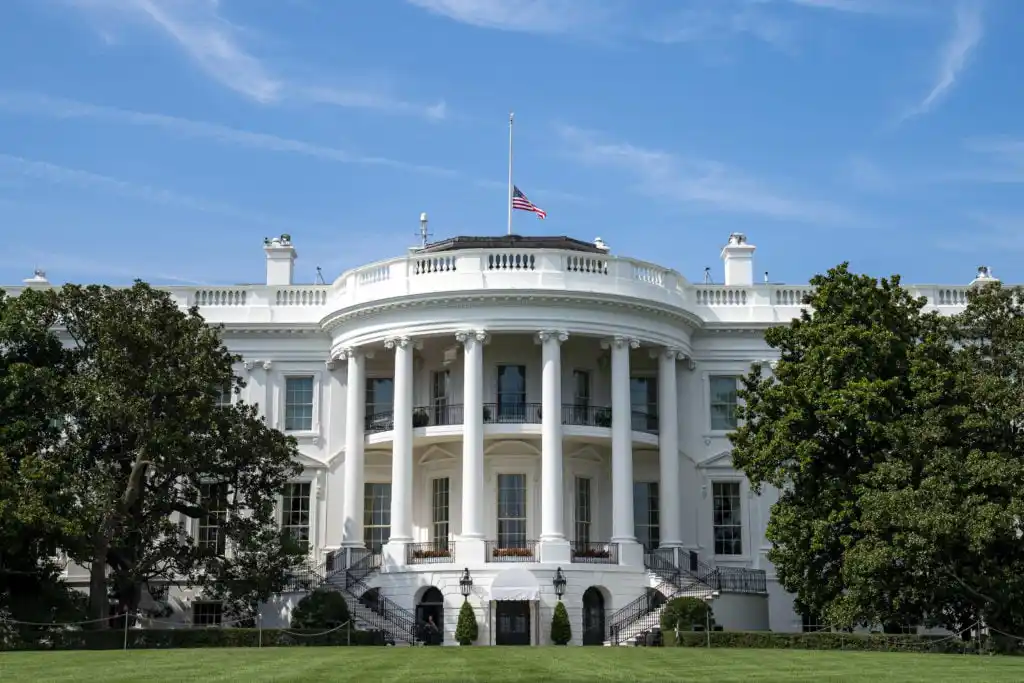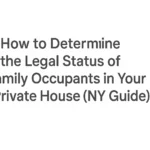CHALLENGING TRUMP’S IMMIGRATION POLICIES: A Comprehensive Analysis of Impacts on Immigrant Communities
INTRODUCTION
President-elect Donald J. Trump has spoken aggressively about enforcement of immigration laws. His administration’s policies during his first term caused much fear and uncertainty for most vulnerable law-abiding immigrant communities. The policies proved to be disruptive and devastating for these immigrant communities. Because of the Trump administration’s immigration policies, immigrants were afraid to utilize medical services leading to more severe medical and surgical conditions. They were afraid to take their children to school for fear of being apprehended and separated from family members by immigration authorities. Immigrants were afraid to practice their religion and to engage in certain tasks or events that may expose them to the administration’s deportation agencies. This article is intended to minimize the fears and confusion of immigrants observed during Trump’s first presidential term.
Once Trump takes office, immigrants must obtain and understand the important immigration information. Immigrants need to seek out not for profit organizations to obtain assistance and not deprive themselves and their family members of goods and services that would otherwise be available to help them. Not-for-profit organizations appear to have been preparing for a more effective campaign to provide information to immigrants as well as challenging the policies of second Trump term. Immigrant communities with the proper information and resources can help to provide the community members with a peace of mind and even the confidence to go out and do their regular activities.
THE ANTI-IMMIGRANT POLICIES OF THE TRUMP ADMINISTRATION: Detailed Overview
The Trump administration implemented several anti-immigrant measures during his first term. Some of the methods that were used by the Trump administration have been reversed because of national outcry as well as state and federal litigation. Some of the administration’s most disruptive laws and policies are anticipated to be reinstated.
The Zero Tolerance Rule: Impacts and Concerns
The Zero Tolerance Rule: this Trump era rule where anyone illegally crossing over the Mexico-US border would be prosecuted for a criminal offense. Immigrants seeking asylum after crossing over the US border would be treated as criminals or would have to remain in Mexico while their asylum case is being adjudicated. These policies often resulted in the separation of families. While family separation has been defeated, immigrants are still concerned about new types of mechanisms that may be employed by the Trump administration during his second term.
Public Charge Rule: Process and Consequences
Public Charge Rule: prior to this rule change, applicant seeking to adjust their status in the United States need only file an affidavit of support by a family member or friend who would agree to provide financial assistance to the applicant in the event that they were to become a public charge. They would file a form I-864 and provide their immigration status and their tax filings and a letter from the employer indicating future employment.
However, the public charge rule introduced by the Trump administration provided a very burdensome task and a very intrusive probing of the person providing the affidavit of support. The law created much confusion and uncertainty about the immigrants’ use of public benefits. Immigrants were withdrawing from benefits they had already enrolled in or not utilizing benefits that were available to them. These immigrants also failed to utilize healthcare benefits for fear of immigration consequences. There were also reports of raids being conducted by Immigration and Customs Enforcement at locations suspected of having immigrant workers. It appears that even prior to taking office, Donald Trump is exacerbating the fears of immigrants by indicating that his administration will conduct raids of hospitals, schools and churches. Because of the multitude of uncertainties, misinformation and lack of immigrant trust of even the not for profit organization, immigrants were just not utilizing immigration benefits during the first Trump administration.
Roll Back and Restrictions of Humanitarian Relief: DACA, TPS, and Asylum Challenges
Roll Back and Restrictions of Humanitarian Relief: Donald Trump indicated that he would rescind Deferred Action for Childhood Arrivals (“DACA”), he also indicated that he would place restrictions on asylum-seekers and limit the number of refugees that the United States would be willing to accept any also expressed a desire to terminate certain Temporary Protected Status (“TPS”).
For those applicants who are in the United States pursuant to the Deferred Action for Childhood Arrivals these individuals came to the United States as minors with their parents and have been allowed to remain in and to work in the United States. These applicants have only known the United States and do not have any experience of living in their country of origin. Without the DACA benefit these applicants would be in the United States illegally and subject to removal.
For those individuals seeking asylum and who have fled their country of origin, because of persecution related to race, religion, nationality, political beliefs or being a membership of a social class would be paroled in the United States. They can prepare an asylum case in the United States. However, the Trump administration’s anti-immigration policies such as their zero-tolerance rule, force these asylum-seekers to remain in Mexico while their asylum application is adjudicated. Trump also intends on imposing certain limitations to make obtaining relief by asylum more challenging for immigrants. Along the same vein, the administration severely limited the number of refugees that it would accept from certain countries.
Similarly, some countries experiencing devastation or some other crisis has resulted in these nationals being given temporary protected status. TPS allows applicants to remain in the United States without the fear of being deported while being allowed to work in the United States. This benefit is renewable. The Trump administration intends to eliminate TPS for certain countries which would then result in these applicants being subject to removal. Since TPS applicants and DACA applicants are allowed to work in the United States, to withdraw their benefits would likely have a negative effect within the communities in which they work.
Travel Ban: Expected Reimplementation and Its Effects
Travel Ban: Trump is likely to reimplement travel bans on certain countries as he did during his first term. These travel bans caused much disruption for those who were nationals of the countries that were banned. These travel bans precipitated numerous lawsuits that led to modifications of the travel bans customized for the country that was being banned.
STATES AND NOT-FOR-PROFIT ORGANIZATIONS WILL CHALLENGE DONALD TRUMP’S ANTI-IMMIGRANT POLICIES: Legal Responses and Community Action
During his first term, Donald Trump’s immigration policies precipitated numerous lawsuits by states and nonprofit organizations. States that have sanctuary cities filed lawsuits to protect their constituents from the harmful effects of Trump’s immigration policies. The states and organizations all across the country organized and coordinated their resources to protect immigrant communities. Some of the states and organizations filed lawsuits to modify the travel bans. Other organizations brought challenges to Trump’s zero-tolerance rule and family separation. Other states and organizations addressed the public charge rule as well as termination of DACA and TPS.
States and nonprofit organizations are very well familiar with the disruptive and sometimes unconstitutional effects of the immigration policies implemented by the Trump administration. These advocates for immigrants can rely upon their prior experiences and formulate more effective strategies in protecting and advocating for immigrants. There appears to be more effective methods of reaching immigrants and informing them of their rights so that they and their family members do not have to suffer because of confusion and misinformation about immigration laws and policies.
Immigrants have a responsibility to themselves and their family members to make a good faith effort to obtain accurate information, so that they can best help themselves and their family members. Immigrants have to take the responsibility of informing themselves and their family members as well as their neighbors about information that they have obtained from these immigration advocates. It is only with a stronger relationship between immigrants and their advocates can they endure the next four years of the Trump immigration policies.
CONCLUSION: Navigating an Unpredictable Immigration Climate
The current immigration climate in the United States is unpredictable. Immigrants may encounter significant stress and fear, made worse by the potential return of restrictive policies. This article is intended to offer essential information to help immigrant communities navigate the challenges ahead. By establishing collaboration between immigrants and advocacy organizations, individuals can pursue pathways to legal immigration, while avoiding the effects of adverse policies. Immigrants and their advocates must work together to build effective resources during uncertain times.









0 Comments